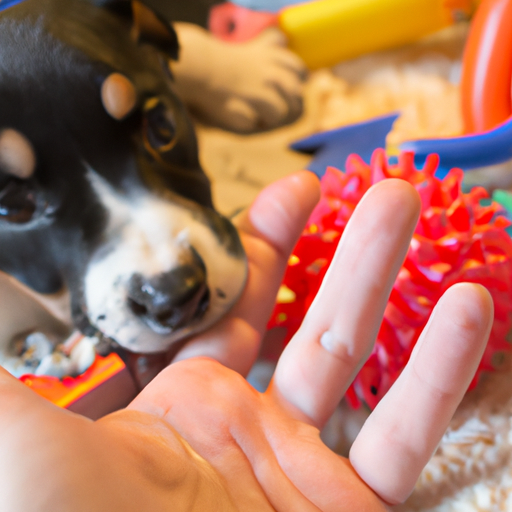Puppy biting is a frequent occurrence for dog owners, especially during the early stages of their life. It’s a critical period for them to learn what is acceptable behavior and what is not. So, as a caregiver, how should you react when your puppy bites? Let’s delve into this topic and find out.
Understanding Why Puppies Bite
First, it’s important to understand why puppies bite. It’s not because they’re aggressive or bad-tempered, but it’s a natural part of their development. Here are a few reasons why puppies bite:
- Teething: Just like human babies, puppies go through a teething phase where their gums are sore and chewing on something can provide relief.
- Playfulness: Puppies explore their world with their mouth and teeth, and biting is a common way to engage in play.
- Learning bite inhibition: Through biting, puppies learn how to control the strength of their bite, which is known as bite inhibition.
How to React to Puppy Biting
When your puppy bites, your reaction is crucial. Here’s how you should respond:
- Redirect the behavior: Provide a chew toy or a treat for your puppy to focus on. This will not only distract them from biting you but also teach them what’s acceptable to bite on.
- Use a firm ‘no’: When your puppy bites, say ‘no’ in a firm but non-threatening voice. This helps your puppy understand that the behavior is not acceptable.
- Ignore the puppy: If the biting continues, try ignoring your puppy. This will send a clear message that the behavior is not tolerated.
Training Techniques to Prevent Biting
While responding to biting is crucial, prevention is even better. Here are some training techniques to prevent your puppy from biting:
- Socialization: Expose your puppy to various environments, people, and other animals. This will help them learn how to behave appropriately.
- Positive reinforcement: Reward your puppy when they behave appropriately. This could be through treats, praises, or petting.
- Clicker training: Use a clicker to mark the behavior you want to encourage. Click and treat when your puppy is not biting to strengthen the behavior.
Dealing with Persistent Biting
If your puppy continues to bite despite your best efforts, it may be time to consult a professional. A professional dog trainer or a behaviorist can provide insight into your puppy’s behavior and offer personalized training strategies.
| Signs of Persistent Biting | Possible Solutions |
|---|---|
| Biting becomes more frequent or aggressive | Consult a professional |
| Biting is accompanied by growling or snapping | Enroll your puppy in a training class |
| Your puppy doesn’t respond to your reactions or training techniques | Consider one-on-one training sessions with a professional |
FAQ
Q: Why does my puppy bite me and not my partner?
A: Puppies often bite the person who interacts with them the most. If you’re the primary caregiver, the puppy is more likely to bite you during play or when seeking attention.
Q: My puppy is teething. What can I give them to chew on?
A: There are several puppy-safe chew toys available in the market. You can also try freezing a wet washcloth for your puppy to chew on.
Q: How long does the biting phase last in puppies?
A: The biting phase typically lasts until the puppy is about six months old. However, this can vary depending on the breed and individual puppy.
Q: I’ve tried everything but my puppy still bites. What should I do?
A: If your puppy’s biting persists, it’s best to consult a professional. They can provide personalized advice and training strategies.
Q: Is it normal for puppies to bite a lot?
A: Yes, it’s normal for puppies to bite a lot during their early stages. They’re exploring their world and learning what’s acceptable. It’s important to guide them during this phase.



